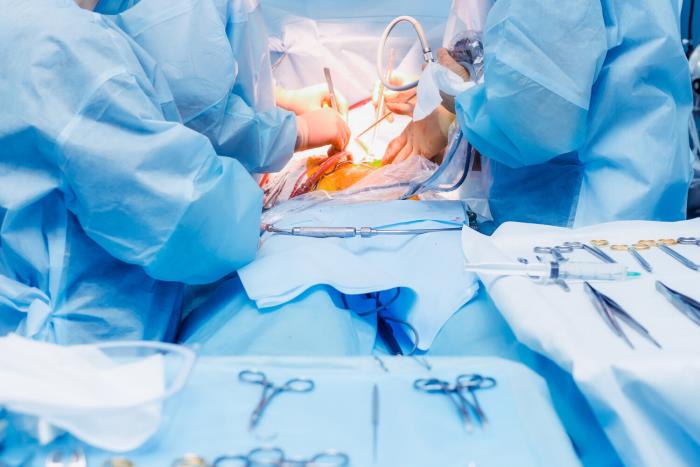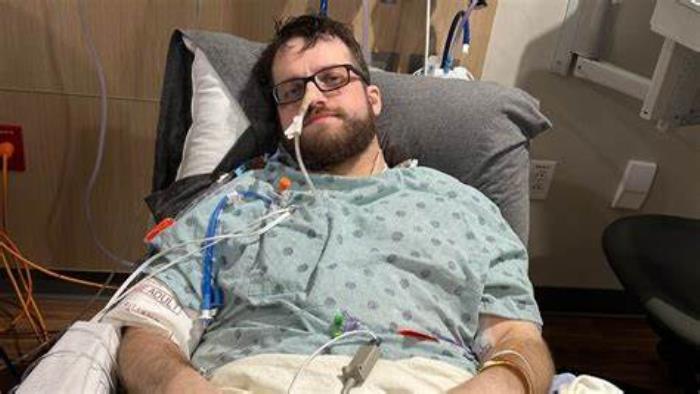Intestine transplantation in India is an emerging specialty, providing life-saving treatment for patients with irreversible intestinal failure. With advanced medical infrastructure, experienced surgical teams, and cost-effective care, India has become a growing hub for this complex procedure, offering hope to patients worldwide.
Medical disclaimer: This content is for general awareness and does not replace a doctor’s consultation. For diagnosis or treatment decisions, consult a qualified specialist.
The Evolution of Intestine Transplant Techniques
Over the years, intestine transplant techniques have evolved significantly, transitioning from basic surgical methods to more sophisticated procedures. Innovations in immunosuppressive therapies, surgical precision, and post-operative care have contributed to improved graft survival rates and patient outcomes.
The Role of Minimally Invasive Surgery in Intestine Transplantation
Minimally invasive techniques are being explored in intestine transplantation to reduce surgical trauma, minimize recovery time, and lower complication rates. While still in its early stages, laparoscopic and robotic-assisted approaches are showing promise in reducing patient morbidity and improving post-surgical recovery.

Use of Advanced Imaging for Pre-Transplant Evaluation
Advanced imaging techniques, such as high-resolution CT scans, MRI, and angiography, are integral to pre-transplant evaluations. These tools provide detailed insights into intestinal health, vascular structures, and potential complications, ensuring precise surgical planning and better transplant outcomes.
Innovations in Organ Preservation for Intestine Transplants
Organ preservation techniques, such as hypothermic perfusion and normothermic machine perfusion, have revolutionized intestine transplants. These innovations maintain the organ's viability for longer durations, reduce ischemic damage, and improve graft success rates.
Robotic-Assisted Intestine Transplantation: A New Frontier
Robotic-assisted intestine transplantation is an emerging frontier, offering unparalleled precision and control in surgical procedures. This technology enhances visualization, reduces surgical fatigue, and allows for minimally invasive techniques, potentially transforming the future of intestine transplants.
3D Printing Applications in Intestine Transplant Surgical Planning
3D printing is being utilized to create patient-specific anatomical models for intestine transplant planning. These models aid surgeons in visualizing complex structures, simulating procedures, and refining surgical strategies, ultimately leading to better patient outcomes and reduced operative risks.
Suture-Free and Stapling Technologies in Intestine Transplants
Innovative suture-free and stapling technologies are enhancing the precision and safety of intestine transplant procedures. These methods minimize tissue trauma, reduce surgical time, and improve healing, leading to better outcomes for patients.
Reducing Surgical Risks Through Advanced Anesthesia Techniques
Advanced anesthesia techniques, including targeted nerve blocks and real-time monitoring, reduce surgical risks by ensuring stable patient vitals, minimizing blood loss, and improving post-operative recovery.

Advances in Managing Rejection with Immunosuppressive Therapies
New-generation immunosuppressive drugs offer targeted action with fewer side effects, enhancing the management of acute and chronic rejection while maintaining overall patient health.
Multivisceral Transplantation: A Breakthrough for Complex Cases
For patients with widespread gastrointestinal failure, multivisceral transplantation (transplanting multiple organs like the stomach, pancreas, and intestines) has become a lifesaving option. Advances in surgical techniques and post-operative care have improved outcomes for these complex cases.
Improved Outcomes with Enhanced Post-Operative Care Protocols
Enhanced recovery protocols, including early mobilization, personalized nutrition plans, and optimized pain management, have significantly improved post-operative outcomes and reduced hospital stays.
Pediatric Intestine Transplant Advances: Better Survival Rates
In pediatric patients, advancements in surgical techniques, tailored immunosuppressive therapies, and comprehensive care models have improved survival rates and long-term health outcomes.
The Role of Artificial Intelligence in Surgical Decision-Making
AI-powered tools assist surgeons in pre-operative planning, risk assessment, and intraoperative precision. These technologies reduce errors and enhance the overall success of intestine transplants.
Telemedicine and Remote Monitoring for Post-Transplant Care
Telemedicine allows for regular follow-ups and real-time health monitoring, ensuring timely interventions and reducing the burden of hospital visits for transplant patients.
Precision Medicine: Tailored Therapies for Better Transplant Success
Precision medicine uses genetic and molecular profiling to tailor immunosuppressive regimens and other therapies to individual patient needs, optimizing transplant success rates.
Advances in Nutritional Support for Post-Transplant Recovery
Post-transplant nutritional support has evolved with personalized diets, advanced supplements, and gut microbiota management, ensuring optimal recovery and long-term intestinal function.
Collaborative Multidisciplinary Approaches in Indian Hospitals
Indian hospitals emphasize collaborative care involving surgeons, gastroenterologists, dietitians, and psychologists. This multidisciplinary approach ensures comprehensive care for intestine transplant patients.
Long-Term Outcomes of Modern Intestine Transplant Techniques
Modern techniques, such as minimally invasive surgeries and enhanced immunosuppressive protocols, have led to improved graft survival rates and better long-term patient health.
Risks and Complications of Intestine Transplant Surgery
Understand the risks and complications of intestine transplant surgery. This blog highlights potential challenges such as rejection, infection, and long-term health concerns that patients may face, along with strategies to manage these risks effectively.
The Future of Intestine Transplantation in India
With advancements in robotic surgery, organ preservation technologies, and telemedicine, India is poised to become a global leader in intestine transplantation, offering world-class care at affordable rates.
Best Intestine Transplant in India
The Best Intestine Transplant in India offers a vital treatment option for patients with severe intestinal failure, combining advanced surgical techniques and comprehensive post-transplant care.
Best Intestine Transplant Hospitals in India
The Best Intestine Transplant Hospitals in India are equipped with cutting-edge technology and multidisciplinary teams, ensuring seamless patient care and successful transplant outcomes.
Intestine Transplant Cost in India
The Intestine Transplant Cost in India is competitively priced, providing access to world-class treatment with transparent pricing and comprehensive care packages.
Best Intestine Transplant Surgeons in India
The Best Intestine Transplant Surgeons in India are highly skilled and experienced, ensuring precise surgical interventions and personalized patient care for optimal recovery and long-term success.
FAQ Section
1. How has intestine transplant surgery improved in India in recent years?
Advancements in surgical techniques, better organ preservation, tailored immunosuppressive therapies, and enhanced post-operative care have significantly improved outcomes in India.
2. What are the benefits of minimally invasive techniques for intestine transplants?
Minimally invasive techniques reduce surgical trauma, lower infection risk, shorten recovery times, and improve overall patient outcomes.
3. How do advanced imaging technologies help in intestine transplants?
Advanced imaging, like 3D modeling and real-time intraoperative imaging, aids in precise surgical planning and reduces the risk of complications during the procedure.
4. What innovations are used in organ preservation for intestine transplantation?
Innovations include perfusion machines, which maintain the organ's viability during transport, and preservation solutions that enhance the longevity and functionality of the intestine.
5. Is robotic-assisted surgery available for intestine transplants in India?
Yes, robotic-assisted surgeries are emerging in India, offering greater precision and less invasive approaches for intestine transplants.
Updated for 2025 – Discover the best hospitals in India for intestine transplant procedures, including top choices, advanced techniques, and cost-effective options. Intestine Transplant Cost in India
Discover the best hospitals in India for intestine transplant procedures, including top choices, advanced techniques, and cost-effective options. Intestine Transplant in India
Explore the latest alternatives to intestine transplantation, including innovative therapies, emerging treatments, and patient success stories. Discover how advancements in medical science are providing new hope for managing intestinal disorders without the need for transplantation. Intestine Transplant Alternatives: Emerging Therapies and Innovations